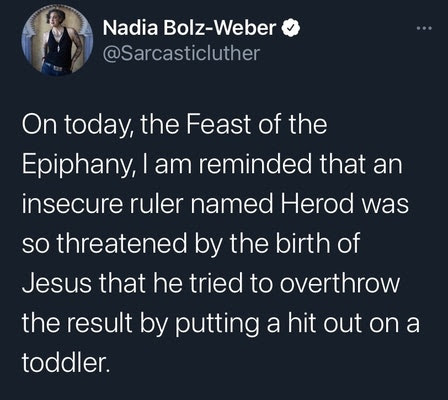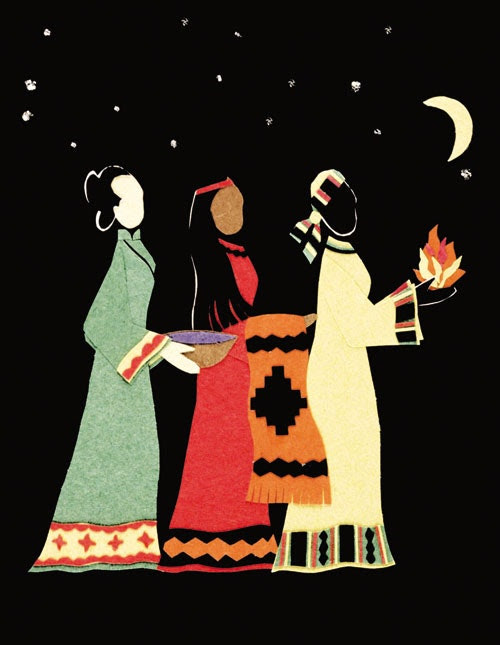Epiphany: A story of tyranny, fear, and 2 masculinities

|
Below is an essay from last year, published for paid subscribers, that I making available to everyone today. (I also recorded me reading it – just click above) Matthew 2
An Epiphany Story of 2 Masculinities A story of 2 men – Herod, who is a ruler on a throne of power, and Joseph who is a peasant in an unconventional marriage. One man is powerful and one man is not. And yet the text only describes one of these men as being afraid. And it wasn’t the peasant. Matthew’s Gospel tells us that King Herod made the Magi tell him where this baby was because he was frightened.Frightened of a baby. Threatened by a horoscope and a newborn. And this fear that his position in life is so tenuous that it must be fortified by sacrificing whoever it takes is not a theoretical by the way – this Herod guy literally killed two of his own sons because he felt threatened by them. His own sons. Fear that what he had could be taken away, or fear of not getting what he wanted turned him into a monster. So much so that when he can’t quite locate the right baby, the one that is so threatening to him, he just sends for all the children two and under in and around Bethlehem to be killed. Take that in. This is what fear does. This is what fear does. Fear disguises itself in so many ways: as greed, hate, isolation, addiction…the list is endless. But in the end fear is at the root of all of it. And while you and I might not be murderous tyrants, none of us are free from the effects of fear in our lives. It keeps us isolated and small and it steals away joy and possibility. But in Joseph we see a different kind of man than Herod. Joseph was not afraid.An angel came from God and spoke love, was love, embodied love, sought to protect love – like a divine can of compressed air, and this cast out Joseph’s fear so that he could function the way he was intended to. And here’s one clue – one way that we can know that Joseph was not afraid: he didn’t bat an eye when the angel said that his baby and wife weren’t safe so he should take his family to Egypt. Egypt. The place his ancestors were enslaved. The place that God rescued his people from slavery. With fear cast out, Joseph was able to believe it possible that God’s redemptive work can happen anywhere – even Egypt. With fear cast out, Joseph no longer had to see everything through the lens of what it was in the past. With fear cast out, he was able to beat a king, protect his wife and child, and preserve that which is good in the face of tyranny. (Just as an aside, we really need to start having better conversations about men. I don’t think that maligning traits that have historically seen as “masculine” is helpful. I want to start lifting up examples of beneficent masculinity, but I digress…) Herod’s fear caused death and Joseph’s fearlessness protected life. Of course the irony is that Herod feared this baby for all the wrong reasons. The Christ child did not knock Herod off his pathetic little throne. History took care of that. No. Jesus of Nazareth did not overthrow Rome, he laughed at Rome. He saw Rome for what it was: temporary. Fleeting. Harsh and demanding and tyrannical, yes, but temporary. And this child, protected by the songs of angels and the heart of his mother and the fearlessness of his father, came to free the people. Free us from the shackles of sin and fear. Gospel people are free people and free people are dangerous people. Free people aren’t ruled by fear. Free people see Rome for what it is. And you know what? There are angels hovering round us, good people of God. There are messengers of love all around. And again, and forever, they say: do not be afraid. Do not be afraid. For in the heart of God there is enough love to cast out fear. Herods of the world, take note. Happy Epiphany. Wise Women Also Came(image and poem by the astounding Jan Richardson)Wise women also came. |





